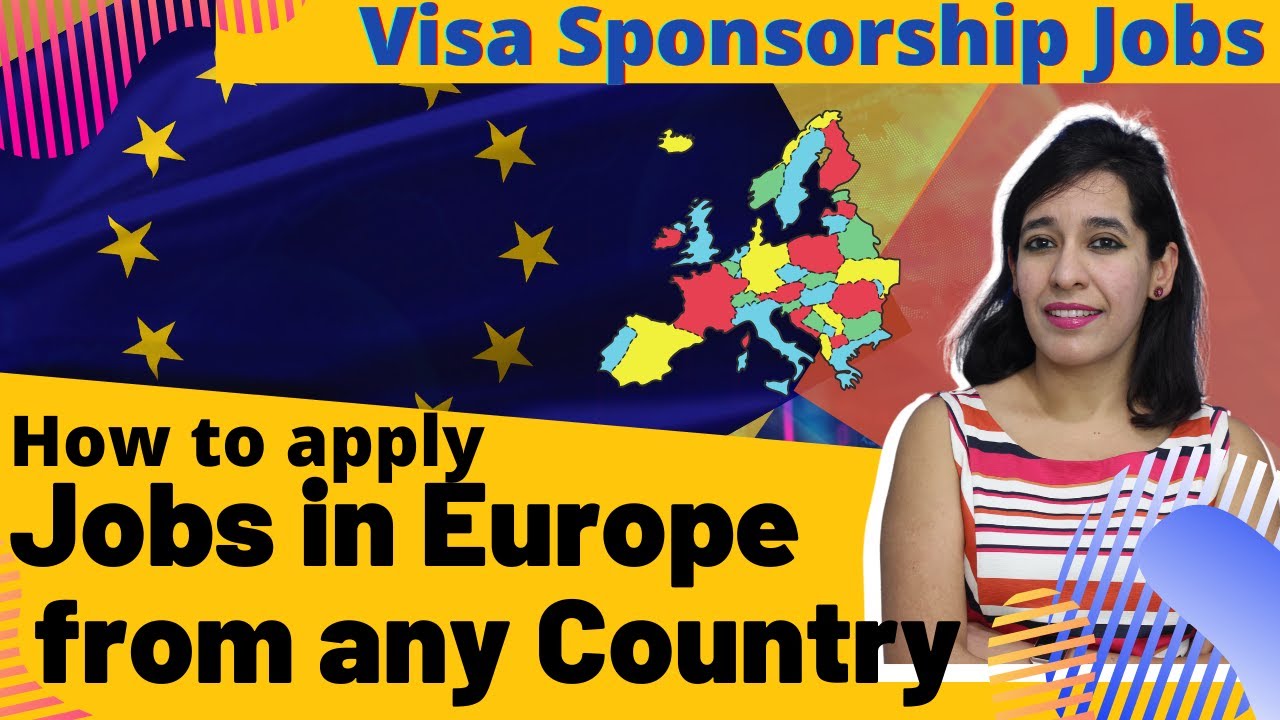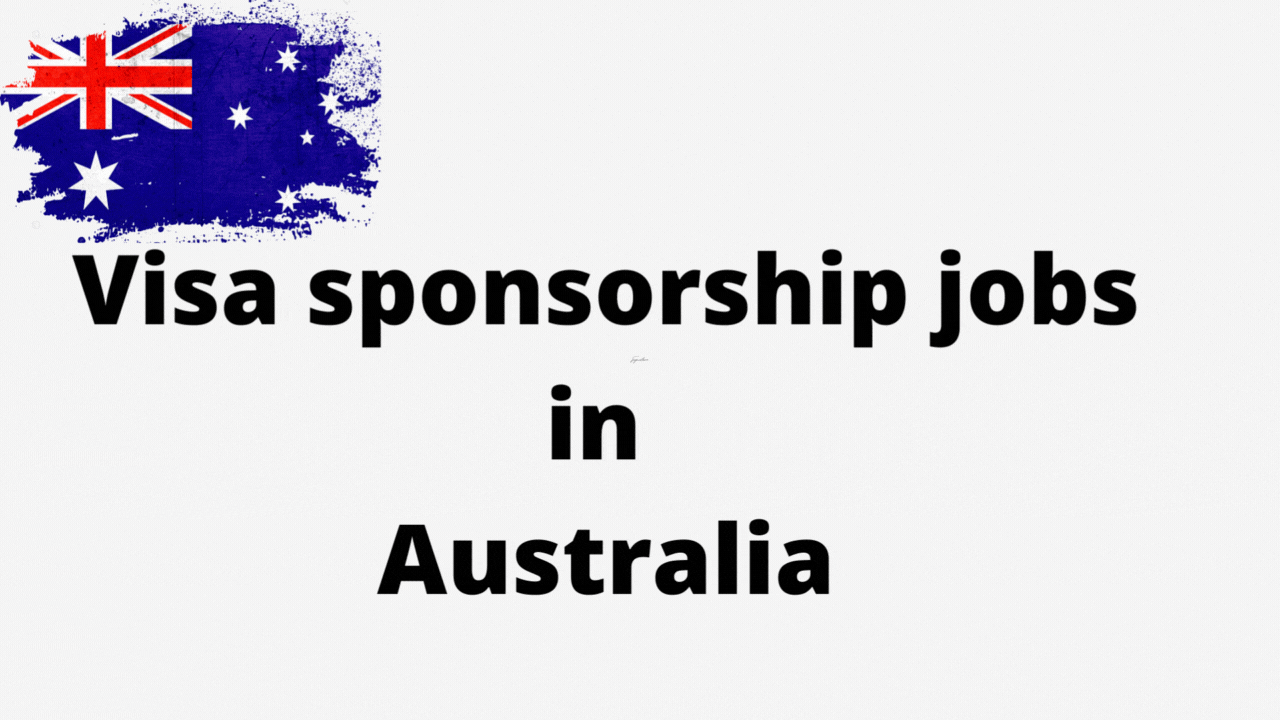Europe’s thriving economies, cutting-edge industries, and commitment to innovation make it a magnet for engineers worldwide. In 2025, countries like Germany, the Netherlands, Ireland, and the UK face growing demand for skilled engineers in fields such as software, mechanical, electrical, and civil engineering. For international professionals—whether from India, Nigeria, Brazil, or beyond—engineering jobs in Europe with visa sponsorship offer a unique opportunity to work on transformative projects, earn competitive salaries, and experience diverse cultures. However, navigating visa regulations, job markets, and cultural adjustments can be complex. Visa-sponsored roles, often facilitated by employers or recruitment agencies, simplify this journey.
In this comprehensive guide, I’ll explore the landscape of engineering jobs with visa sponsorship in Europe for 2025. This article is designed to guide engineers from diverse backgrounds toward a rewarding European career. Whether you’re a software engineer eyeing Berlin’s tech scene or a mechanical engineer targeting Ireland’s manufacturing hub, this guide will equip you with the knowledge to succeed.
Why Engineering Jobs with Visa Sponsorship Matter
Picture yourself as a talented software engineer in India, eager to join a tech startup in Berlin. Your skills are in demand, but Europe’s visa systems, language barriers, and job application nuances feel daunting. Visa sponsorship bridges this gap, allowing employers to support your legal work authorization. These roles are vital for foreigners, aligning personal ambitions with Europe’s need for engineering talent.
The Demand for International Engineers
Europe faces significant skills shortages in engineering. In 2024, Germany alone reported a shortfall of 320,000 STEM professionals, while the EU’s tech sector needed 1.2 million additional workers. International engineers fill critical roles—over 20% of tech jobs in Germany and the Netherlands are held by non-EU nationals. Visa sponsorship programs, like Germany’s EU Blue Card and the UK’s Skilled Worker visa, issued over 50,000 work permits in 2022, a number projected to rise in 2025.
What Is Visa Sponsorship?
Visa sponsorship means a European employer, licensed by their government, applies for a work permit or visa (e.g., EU Blue Card, UK Skilled Worker visa) to hire you. These visas, typically valid for 1–4 years, cover roles like:
-
Software Engineers
-
Mechanical Engineers
-
Electrical Engineers
-
Civil Engineers
-
Data Engineers
Sponsorship often includes visa fees, legal paperwork, and sometimes relocation support (flights, housing), making the process cost-free for candidates.
Why 2025 Is a Great Time
Europe’s engineering demand is surging, driven by:
-
Green Transition: Renewable energy projects in Denmark and Sweden need electrical and civil engineers.
-
Tech Boom: Germany, Ireland, and the Netherlands seek software and data engineers for AI and cloud computing.
-
Infrastructure Growth: The UK and Portugal require civil engineers for rail and urban projects.
-
Digital Recruitment: Virtual interviews and AI job platforms streamline hiring.
Having researched this space and spoken with professionals, I’ve seen how visa-sponsored engineering jobs transform lives—provided you approach the process strategically.
Table 1: The Visa Sponsorship Process for Engineers
|
Step |
Description |
Key Details |
|---|---|---|
|
1. Eligibility Check |
Verify qualifications, experience, and language skills. |
Requires engineering degree, 2+ years experience, English proficiency (IELTS 6.5 or equivalent). |
|
2. Job Application |
Apply via job boards, company sites, or agencies. |
Search “visa sponsorship” on LinkedIn, Indeed, or EURES. |
|
3. Interview & Offer |
Attend virtual or in-person interviews, secure job offer. |
Agencies like Relocate.me offer interview prep. |
|
4. Visa Application |
Employer files for work permit/visa (e.g., EU Blue Card). |
Takes 4–12 weeks; includes biometrics, fees (employer-paid). |
|
5. Relocation |
Arrive in Europe, start work, and settle in. |
Includes flights, temporary housing, cultural orientation. |
|
6. Work & Integration |
Begin role, pursue permanent residency if desired. |
EU Blue Card holders can apply for residency after 33 months. |
Note: Process takes 4–8 months. Candidate costs: £0 (employer-funded).
Start preparing your CV and language skills today
Software Engineer in Tech Hub

Rahul from India thrives as a software engineer in Berlin with visa sponsorship.
How to Secure Engineering Jobs with Visa Sponsorship
Let’s break down the process of landing a visa-sponsored engineering job in Europe.
Step 1: Assess Your Eligibility
Employers prioritize candidates meeting local standards. Common requirements include:
-
Qualifications: A bachelor’s or master’s degree in engineering (e.g., computer science, mechanical, electrical).
-
Experience: Typically 2–5 years in your field.
-
Language Skills: English proficiency (IELTS 6.5 or equivalent); German, Dutch, or French is a plus but often not required for tech roles.
-
Certifications: Relevant credentials (e.g., AWS for software engineers, PMP for project engineers) boost chances.
Step 2: Find Visa-Sponsored Engineering Jobs
You can source jobs through:
-
Job Boards: Platforms like LinkedIn, Indeed, EuroEngineerJobs, and EURES list visa-sponsored roles.
-
Company Websites: Tech giants (Google, Amazon) and manufacturers (Siemens, Airbus) advertise sponsored roles.
-
Recruitment Agencies: Agencies like Relocate.me and Y-Axis specialize in visa-sponsored engineering jobs, offering relocation support.
-
Government Portals: EURES and national sites (e.g., Germany’s Make it in Germany) promote sponsored jobs.
Tip: Search for “visa sponsorship” or “relocation support” in job listings to filter opportunities.
Step 3: Apply and Interview
Tailor your CV to European standards, highlighting technical skills and project outcomes. Many companies conduct virtual interviews for international candidates. Agencies like Relocate.me provide coaching to stand out.
Step 4: Secure Sponsorship and Visa
Once offered a job, your employer applies for a work permit or visa (e.g., EU Blue Card in Germany, Skilled Worker visa in the UK). The process takes 4–12 weeks, with employers handling:
-
Legal paperwork
-
Visa fees
-
Relocation logistics (e.g., flights, housing)
Step 5: Prepare for Technical Assessments
Some roles require technical tests or certifications:
-
Software Engineers: Coding challenges (e.g., LeetCode, HackerRank).
-
Mechanical/Electrical Engineers: Design simulations or CAD proficiency.
-
Civil Engineers: Knowledge of Eurocodes or local standards.
Agencies and employers often provide resources to prepare.
Step 6: Relocate and Settle
Employers or agencies may offer:
-
Flight reimbursements
-
Temporary accommodation
-
Language courses
-
Cultural integration support
For example, Natures Way Foods in the UK provides accommodation assistance for engineers.
Table 2: Top Engineering Roles with Visa Sponsorship
|
Role |
Demand (% of Sponsored Roles) |
Salary Range (EUR) |
Key Countries |
|---|---|---|---|
|
Software Engineer |
40% | €50,000–€90,000 |
Germany, Netherlands, Ireland |
|
Mechanical Engineer |
20% | €45,000–€75,000 |
Germany, UK, Austria |
|
Electrical Engineer |
20% | €45,000–€80,000 |
Denmark, Sweden, UK |
|
Civil Engineer |
15% | €40,000–€70,000 |
UK, Portugal, Norway |
Note: Software engineering leads due to tech growth. Salaries vary by country and experience.
Target high-demand roles to boost your chances
Mechanical Engineer in Factory

Fatima from Brazil excels as a mechanical engineer in Munich with visa sponsorship.
Top Employers and Agencies Offering Visa Sponsorship in 2025
Choosing the right employer or agency is critical. Here are trusted options for engineers:
Major Employers
-
Tech Companies: Google (Ireland), Amazon (UK), Zalando (Germany) sponsor software and data engineers.
-
Manufacturing: Siemens (Germany), Airbus (France), and Aptiv (Poland) hire mechanical and electrical engineers.
-
Infrastructure: Balfour Beatty (UK) and Skanska (Sweden) recruit civil engineers for rail and urban projects.
-
Food Industry: Natures Way Foods (UK) sponsors multi-skilled engineers.
Recruitment Agencies
-
Relocate.me: Specializes in tech jobs with visa sponsorship across Europe.
-
Y-Axis: Assists with engineering roles in Germany, Ireland, and Portugal.
-
EuroEngineerJobs: Lists mechanical, electrical, and civil engineering jobs with sponsorship.
-
Skills Provision: Supports engineering roles in the UK with visa and accommodation assistance.
-
Lamiiine: Curates daily visa-sponsored job lists, including engineering.
Pro Tip: Check the UK’s Register of Licensed Sponsors or Germany’s Federal Employment Agency for verified employers.
Real Success Stories: Visa-Sponsored Engineers
Let’s meet three engineers who landed European jobs with visa sponsorship, showcasing the process in action.
Case Study 1: A Software Engineer from India
Name: Rahul, 29, Software Engineer
Employer: Zalando, Berlin, Germany
Journey: Rahul found a sponsored role via Relocate.me, which coached him through coding interviews. Zalando secured an EU Blue Card, covering visa fees and flights. Rahul now earns €70,000 annually and enjoys Berlin’s tech community, supported by company language courses.
Insight: Tech-focused agencies streamline applications for software engineers.
Case Study 2: A Mechanical Engineer from Brazil
Name: Fatima, 34, Mechanical Engineer
Employer: Siemens, Munich, Germany
Journey: Fatima applied directly via Siemens’ career portal, leveraging her CAD expertise. Siemens handled her EU Blue Card and provided temporary housing. Now earning €60,000, she works on renewable energy projects and attends company integration events.
Insight: Direct applications to multinationals are effective for experienced engineers.
Case Study 3: A Civil Engineer from Nigeria
Name: Tunde, 31, Civil Engineer
Employer: Balfour Beatty, London, UK
Journey: From a red list country, Tunde applied via Indeed and worked with Skills Provision for visa compliance. Balfour Beatty secured a Skilled Worker visa, offering accommodation support. Tunde earns £45,000 on rail projects and plans to pursue permanent residency.
Insight: Agencies ensure ethical hiring for red list candidates.
These stories highlight how visa-sponsored jobs open doors with strategic planning.
 Tunde from Nigeria builds his career as a civil engineer in London with visa sponsorship.
Tunde from Nigeria builds his career as a civil engineer in London with visa sponsorship.
Challenges and Solutions for Visa-Sponsored Engineering Jobs
The path to a European engineering job has hurdles. Here’s how to overcome them:
Challenge 1: Visa Processing Delays
Visa applications can take 4–12 weeks. Solution: Work with agencies like Y-Axis, which ensure accurate documentation to expedite processes.
Challenge 2: Language Barriers
While English is common, some roles require local languages. Solution: Focus on English-speaking countries (Ireland, UK) or tech hubs where English suffices (Berlin, Amsterdam).
Challenge 3: Red List Restrictions
Recruitment from red list countries (e.g., Nigeria) faces ethical restrictions. Solution: Apply directly via company portals or EURES, as Tunde did, with agency support for compliance.
Challenge 4: Cultural Adjustment
Adapting to European work cultures can be challenging. Solution: Choose employers like Siemens, which offer integration programs and community events.
Challenge 5: Exploitation Risks
Unethical agencies may charge fees. Solution: Use verified platforms like EURES or the NHS Employers’ ethical recruiters list (for UK roles) and avoid upfront payments.
Table 3: Key Stats on Visa-Sponsored Engineering Jobs
|
Metric |
Details |
Source/Projection |
|---|---|---|
|
Engineering Shortages |
320,000 in Germany, 1.2M in EU tech (2024) |
German Federal Employment Agency, 2024 |
|
Non-EU Engineers |
20% of tech jobs in Germany, Netherlands |
EU Labour Market Report, 2024 |
|
Visa Issuance |
2022: 50,000; 2025: 60,000+ (projected) |
EU Immigration Data, 2022; 2025 estimate |
|
Top Source Countries |
India (30%), Nigeria (10%), Brazil (8%) |
EU Recruitment Data, 2024 |
|
Employer Costs per Hire |
€5,000–€15,000 |
Industry Estimates, 2025 |
Note: Demand for engineers drives visa sponsorship growth.
Join Europe’s engineering boom in 2025
Expert Tips for Success in 2025
Based on my research and discussions with professionals, here are top tips for landing a visa-sponsored engineering job:
-
Start Early: Update your CV, LinkedIn, and language test results (e.g., IELTS) now.
-
Verify Employers: Use government portals like Germany’s Make it in Germany or the UK’s Register of Licensed Sponsors.
-
Leverage Agencies: Contact Relocate.me or Y-Axis for tailored support.
-
Network Online: Join LinkedIn groups like “Tech Jobs in Europe” or forums for expat engineers.
-
Highlight Skills: Emphasize in-demand skills (e.g., Python, CAD, Eurocodes) in applications.
-
Learn Basics: Basic German, Dutch, or French can set you apart, even if not required.
-
Plan for Growth: Discuss career paths with employers—many offer training for leadership roles.
2025 Data: The State of Visa-Sponsored Engineering Jobs
Key figures highlight the opportunity:
-
Engineering Shortages: Germany needs 320,000 STEM workers; EU tech requires 1.2 million.
-
Visa Issuance: Over 50,000 work permits issued in 2022, projected to hit 60,000 in 2025.
-
Salary Ranges: Software engineers earn €50,000–€90,000; mechanical/electrical engineers €45,000–€80,000; civil engineers €40,000–€70,000.
-
Top Countries: Germany, Netherlands, Ireland, UK lead in sponsorships.
-
Employer Costs: €5,000–€15,000 per hire, covering visas and relocation. Candidates pay nothing.
These numbers reflect Europe’s commitment to global talent.
Sponsorship as a Global Exchange
Visa-sponsored engineering jobs do more than fill roles—they foster innovation through diverse perspectives. Employers like Zalando, with multicultural teams, value the unique insights international engineers bring. Agencies like Relocate.me understand the emotional weight of relocation—leaving home, adapting to new norms, and building community. By offering cultural workshops and networking events, they ensure engineers thrive.
Rahul’s Berlin tech community became his “second home” thanks to Zalando’s support, showing how sponsorship creates belonging. This human-centered view positions visa-sponsored jobs as a mutual exchange, advancing both Europe’s industries and global careers.
Pitfalls to Avoid
Avoid these common mistakes:
-
Ignoring Employer Checks: Verify sponsors on government registries (e.g., UK’s Register of Licensed Sponsors).
-
Applying from Red List Countries via Agencies: Use direct applications for compliance.
-
Vague CVs: Tailor applications to highlight relevant skills and projects.
-
Skipping Language Prep: Weak English skills delay hiring. Invest in IELTS early.
-
Over-Reliance on Agencies: Supplement with direct applications via EURES or company portals.
The Future of Visa-Sponsored Engineering Jobs in 2025
Looking ahead, visa sponsorship will remain critical. Key trends include:
-
Digital Hiring: AI job matching and virtual interviews will accelerate recruitment.
-
Green Engineering: Demand for renewable energy and sustainable infrastructure roles will soar in Denmark, Sweden, and Germany.
-
Tech Expansion: AI, cloud, and cybersecurity roles will dominate in Ireland and the Netherlands.
-
Policy Support: Simplified visa processes, like Germany’s Opportunity Card, will ease access.
AsReady to launch your European engineering career in 2025? Take these steps today:
-
Research Opportunities: Explore EURES, EuroEngineerJobs, and agency sites like Relocate.me.
-
Prepare Documents: Update your CV, LinkedIn, and language test results.
-
Apply Now: Contact employers or agencies to start your visa-sponsored journey.
Your European engineering career is within reach. With the right strategy, you can shape the future of innovation. Start today!
Frequently Asked Questions
-
What are engineering jobs in Europe with visa sponsorship?
Roles where European employers sponsor non-EU engineers for work visas, covering fees and relocation. -
Who qualifies for these jobs?
Engineers with a degree, 2+ years experience, English proficiency (IELTS 6.5 or equivalent), and relevant skills. -
Do I pay for visa sponsorship?
No, employers cover visa fees, permits, and often relocation costs. -
How long does the process take?
Typically 4–8 months, including job offer, visa processing, and relocation. -
Can red list country engineers apply?
Yes, via direct applications (e.g., EURES, company portals), not agencies, for ethical compliance. -
What engineering roles offer sponsorship?
Software, mechanical, electrical, and civil engineering roles, especially in tech and infrastructure. -
How do I find these jobs?
Use EURES, LinkedIn, EuroEngineerJobs, agencies like Relocate.me, or company websites. -
What visas are used?
EU Blue Card (Germany, Netherlands), Skilled Worker visa (UK), or country-specific permits. -
How do employers support relocation?
Many offer flights, housing, and cultural integration, as seen with Natures Way Foods. -
How do I avoid scams?
Verify employers on government registries, avoid upfront fees, and use trusted platforms like EURES.
Visa-sponsored engineering jobs are your gateway to Europe’s innovation hub. Take the first step now!
Ready to move forward? See our latest job listings here and start your application today!










